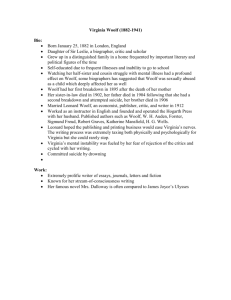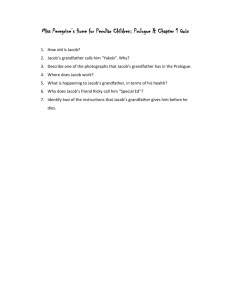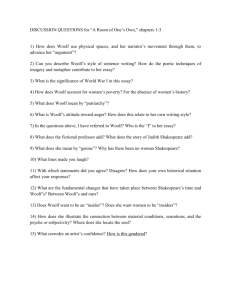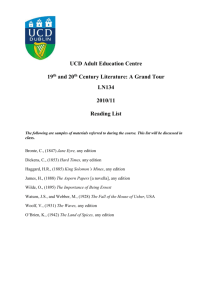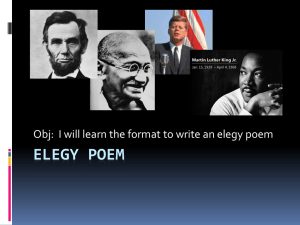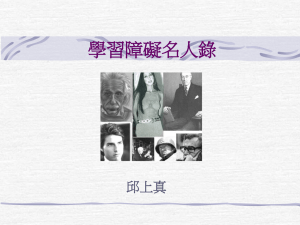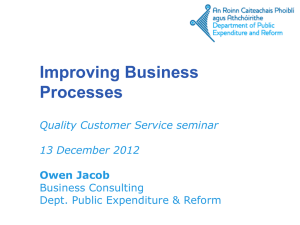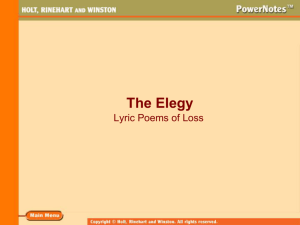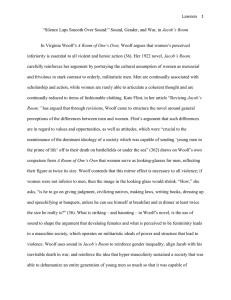Jacob's Room: Woolf and the Successful Modernist Elegy Chelsea
advertisement
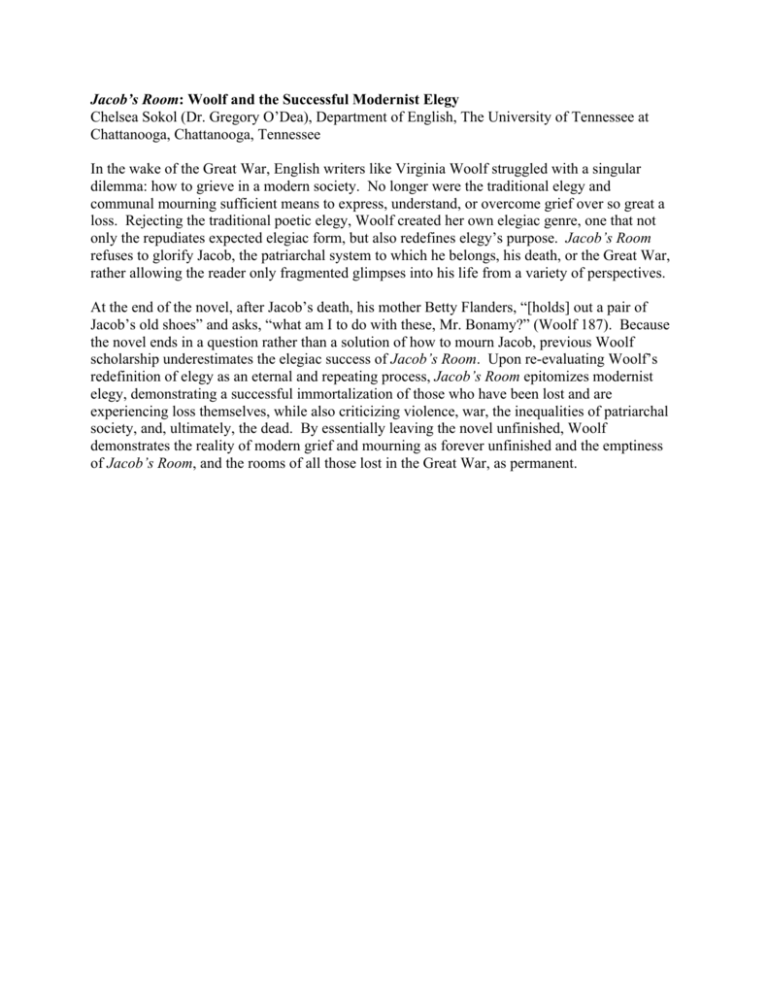
Jacob’s Room: Woolf and the Successful Modernist Elegy Chelsea Sokol (Dr. Gregory O’Dea), Department of English, The University of Tennessee at Chattanooga, Chattanooga, Tennessee In the wake of the Great War, English writers like Virginia Woolf struggled with a singular dilemma: how to grieve in a modern society. No longer were the traditional elegy and communal mourning sufficient means to express, understand, or overcome grief over so great a loss. Rejecting the traditional poetic elegy, Woolf created her own elegiac genre, one that not only the repudiates expected elegiac form, but also redefines elegy’s purpose. Jacob’s Room refuses to glorify Jacob, the patriarchal system to which he belongs, his death, or the Great War, rather allowing the reader only fragmented glimpses into his life from a variety of perspectives. At the end of the novel, after Jacob’s death, his mother Betty Flanders, “[holds] out a pair of Jacob’s old shoes” and asks, “what am I to do with these, Mr. Bonamy?” (Woolf 187). Because the novel ends in a question rather than a solution of how to mourn Jacob, previous Woolf scholarship underestimates the elegiac success of Jacob’s Room. Upon re-evaluating Woolf’s redefinition of elegy as an eternal and repeating process, Jacob’s Room epitomizes modernist elegy, demonstrating a successful immortalization of those who have been lost and are experiencing loss themselves, while also criticizing violence, war, the inequalities of patriarchal society, and, ultimately, the dead. By essentially leaving the novel unfinished, Woolf demonstrates the reality of modern grief and mourning as forever unfinished and the emptiness of Jacob’s Room, and the rooms of all those lost in the Great War, as permanent.
